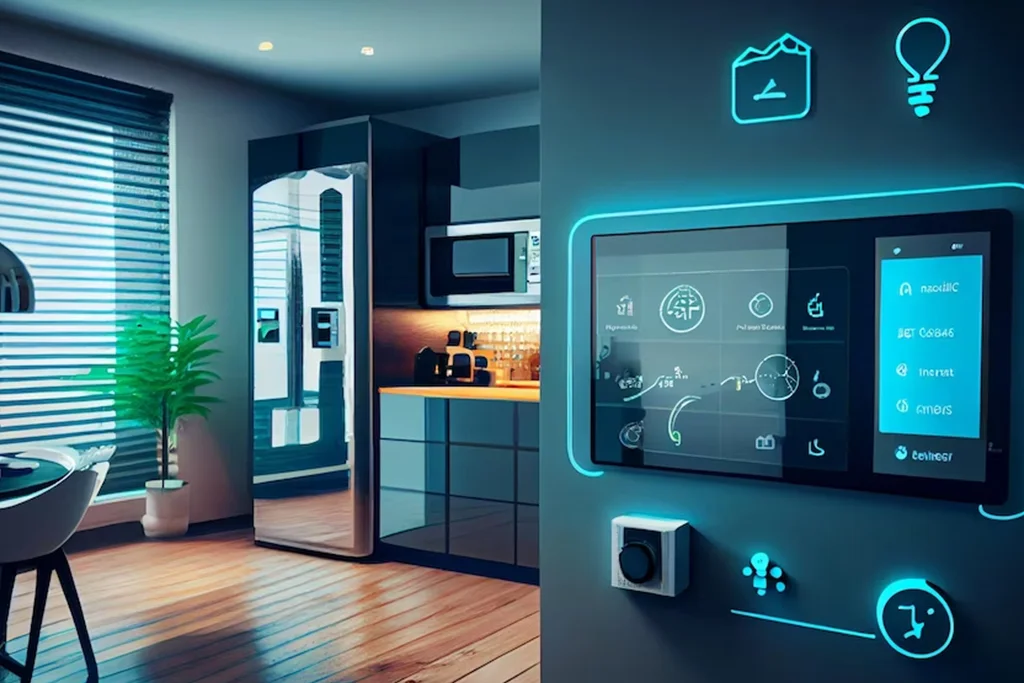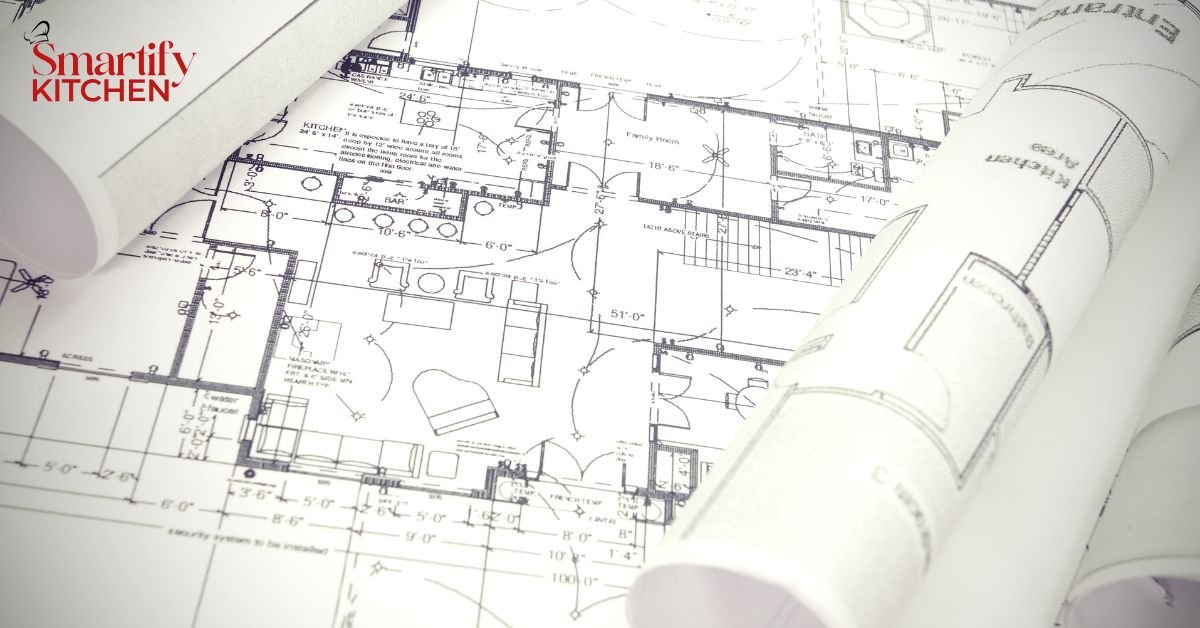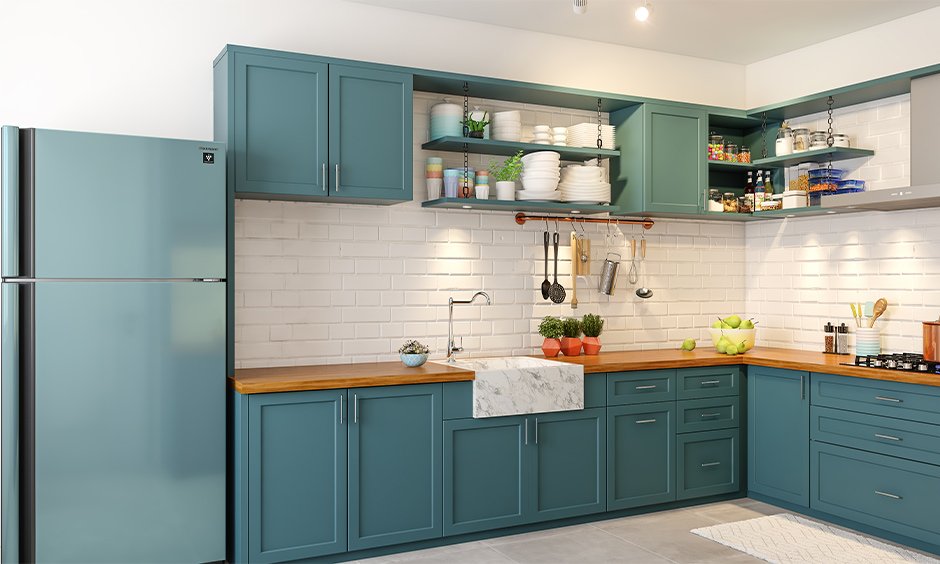Smart Kitchen Technology for Seniors – Enhancing Safety, Independence, and Convenience
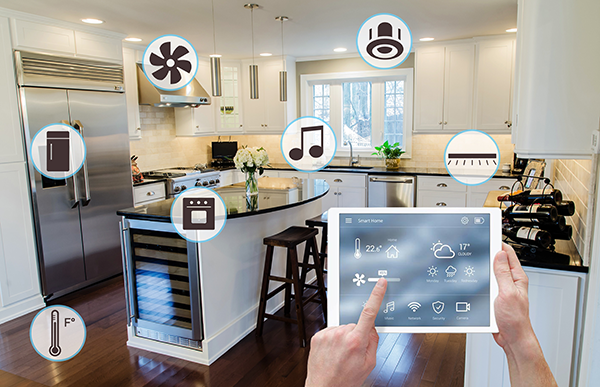
As technology continues to advance, it becomes an increasingly integral part of our daily lives, offering innovative solutions to everyday challenges. One area where technology has made significant strides is in the kitchen.
Smart Kitchen Technology for Seniors can provide numerous benefits, from enhancing safety to promoting independence and convenience.
This article explores the various types of smart kitchen technology available for seniors, the benefits they offer, and practical tips for choosing and setting up these devices.
Challenges Seniors Face in the Kitchen
Let’s explore some of the challenges that seniors face in the kitchen.
Physical Limitations
As people age, they often face physical limitations that can make navigating the kitchen more challenging. Conditions such as arthritis can make it difficult to grip utensils, open jars, or manipulate controls on appliances. Mobility issues can also increase the risk of falls and make it harder to move around the kitchen safely.
Cognitive Challenges
Cognitive decline, including memory loss and dementia, can pose significant challenges in the kitchen. Seniors may forget to turn off appliances, misplace items, or struggle to follow recipes. These challenges can increase the risk of accidents and make meal preparation a daunting task.
Safety Concerns
The kitchen is a high-risk area for accidents, including burns, cuts, and slips. For seniors, these risks are even more pronounced due to physical and cognitive limitations. Ensuring safety in the kitchen is crucial for maintaining independence and preventing injuries.
Key Features of Smart Kitchen Technology for Seniors
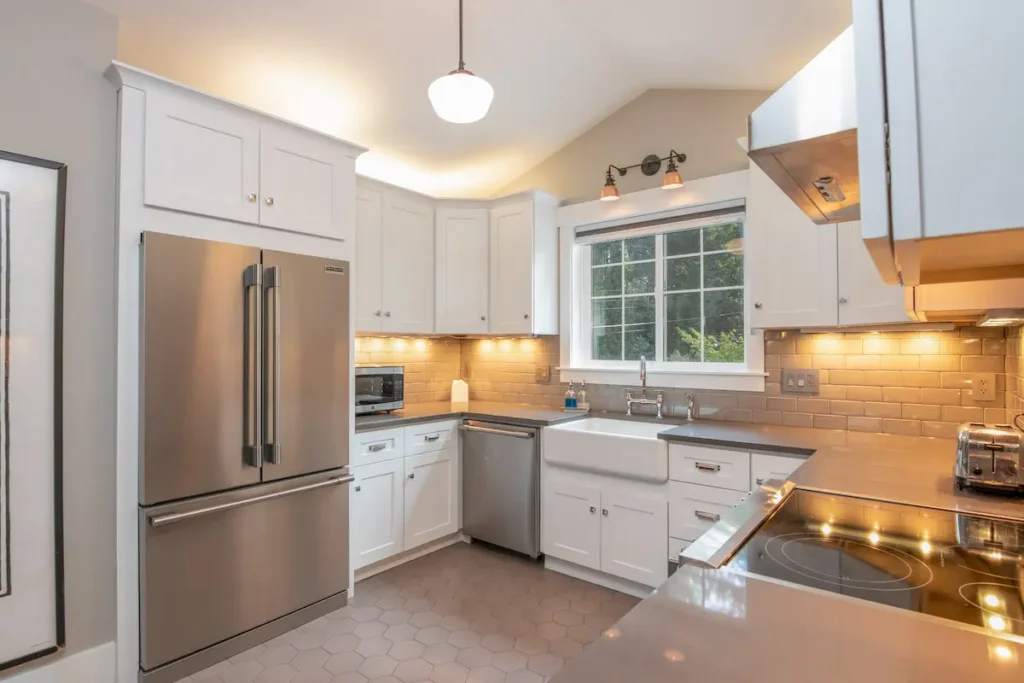
Voice-Activated Controls
Voice-activated controls allow seniors to operate kitchen appliances and devices using simple voice commands. This feature can be particularly beneficial for those with limited mobility or dexterity, reducing the need to manually handle controls.
Automated Appliances
Automated appliances, such as smart ovens and microwaves, can be programmed to follow specific cooking instructions, reducing the need for manual intervention. These appliances can also include pre-programmed recipes and automatic shut-off features to enhance safety.
Safety Alerts and Sensors
Smart kitchen devices often come equipped with safety alerts and sensors that can detect unusual activity or potential hazards. For example, a smart stove might have a sensor that detects if a burner has been left on for too long and sends an alert to the user’s smartphone.
User-Friendly Interfaces
User-friendly interfaces are essential for making smart kitchen technology accessible to seniors. Simple, intuitive controls and clear displays can help seniors navigate these devices more easily, reducing frustration and errors.
Health and Wellness Monitoring
Some smart kitchen devices include health and wellness monitoring features, such as tracking dietary intake or suggesting healthy recipes based on the user’s preferences and health conditions. These features can help seniors maintain a balanced diet and manage chronic conditions.
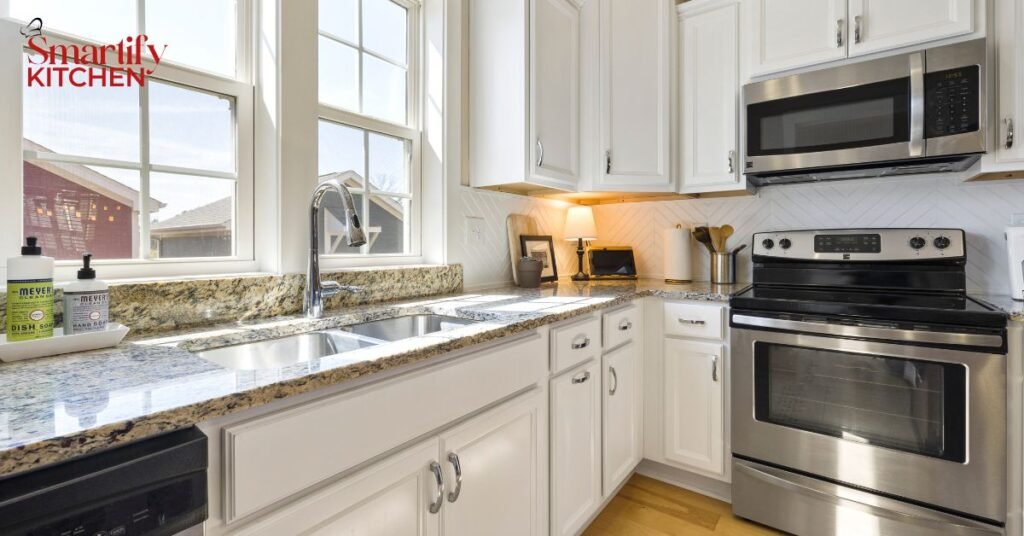
Types of Smart Kitchen Devices for Seniors
Let’s Review some Types of Smart Kitchen Devices for Seniors.
Smart Refrigerators
Smart refrigerators offer a range of features that can be particularly useful for seniors. They can track inventory, provide expiration date alerts, and suggest recipes based on the available ingredients.
Some models also feature easy-access designs that make it simpler for seniors to reach and organize their food.
Smart Ovens and Microwaves
Smart ovens and microwaves come with pre-programmed recipes, voice control, and automatic shut-off features. These appliances can simplify the cooking process and enhance safety by reducing the risk of overcooking or forgetting to turn off the oven.
Smart Dishwashers
Smart dishwashers can offer energy-efficient settings, easy loading and unloading designs, and status alerts that inform users when a cycle is complete. These features can help seniors manage their kitchen chores more efficiently and safely.
Smart Cooking Gadgets
There are numerous smart cooking gadgets designed to make meal preparation easier for seniors. Examples include electric kettles with automatic shut-off, multi-cookers with pre-set functions, and induction cooktops with built-in safety features. These gadgets can streamline the cooking process and reduce the risk of accidents.
Smart Lighting
Smart lighting solutions, such as motion-activated lights and adjustable brightness settings, can improve visibility and safety in the kitchen. Voice-controlled lighting can also be convenient for seniors, allowing them to adjust the lighting without needing to reach for a switch.
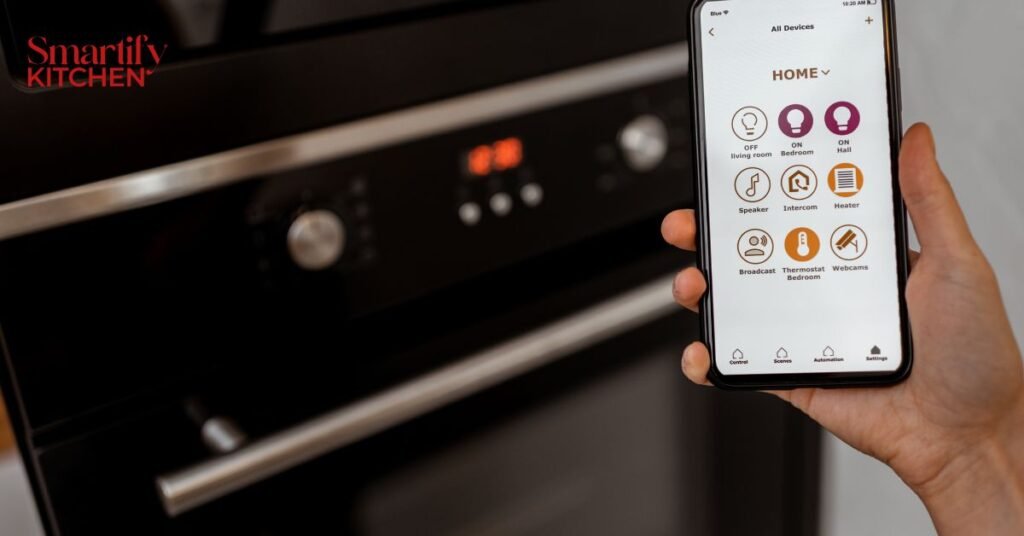
Benefits of Smart Kitchen Technology for Seniors
Let’s explore some of the benefits of smart kitchen technology for seniors.
Enhanced Safety
One of the most significant benefits of smart kitchen technology is enhanced safety. Features such as automatic shut-off, safety alerts, and motion-activated lighting can help prevent accidents and reduce the risk of injuries.
For example, a smart stove that automatically turns off after a certain period can prevent fires, while motion-activated lights can reduce the risk of slips and falls.
Increased Independence
Smart kitchen technology can help seniors maintain their independence by reducing the need for assistance with everyday tasks. Automated appliances and voice-activated controls allow seniors to manage their kitchen activities more easily, enabling them to cook, clean, and organize without relying on others.
Improved Health and Nutrition
Smart kitchen devices can also contribute to better health and nutrition for seniors. Features such as automated meal planning, dietary tracking, and health monitoring can help seniors maintain a balanced diet and manage chronic health conditions.
For example, a smart refrigerator that tracks food inventory and suggests healthy recipes can encourage seniors to eat more nutritious meals.
Integrating Smart Kitchen Technology with Other Smart Home Devices
Let’s Explore some Tips on Integrating Smart Kitchen Technology with Other Smart Home Devices.
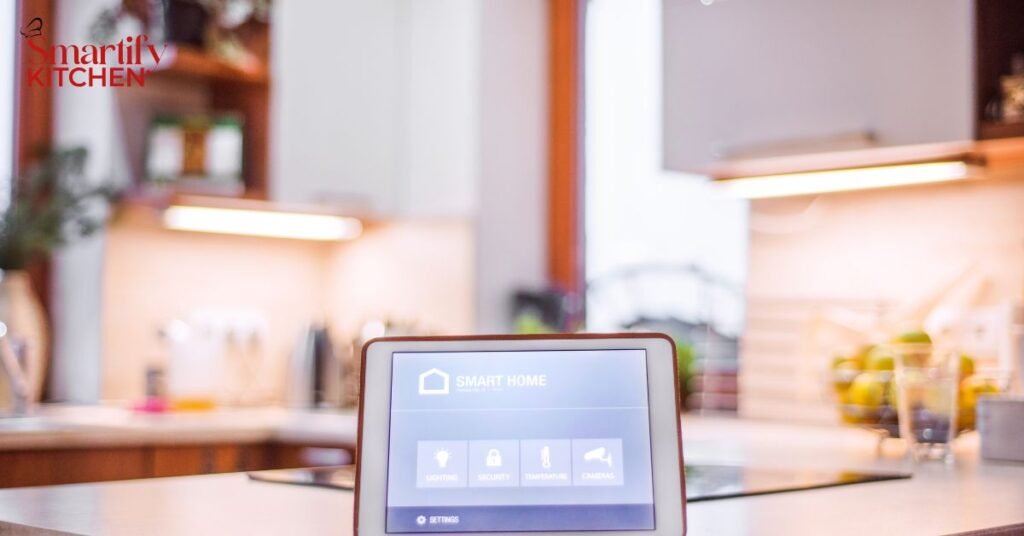
Connecting with Smart Assistants
Smart kitchen devices can be integrated with smart assistants such as Amazon Alexa, Google Assistant, and Apple Siri. This integration allows seniors to control their kitchen devices using voice commands and can provide additional convenience and accessibility.
For example, a senior can ask their smart assistant to preheat the oven or set a timer without needing to manually operate the appliance.
Integration with Smart Home Hubs
Smart home hubs, such as SmartThings and Apple HomeKit, can centralize control of various smart devices in the home, including kitchen appliances. This integration allows for more seamless operation and coordination between different devices.
For example, a smart home hub can synchronize the lighting, heating, and kitchen appliances to create a more comfortable and efficient environment.
Synchronizing with Health Monitoring Devices
Many seniors use health monitoring devices such as smartwatches and fitness trackers to manage their health. These devices can be synchronized with smart kitchen technology to provide a more comprehensive health management system.
For example, a smart refrigerator can suggest recipes based on the user’s health data, such as blood pressure or glucose levels, helping seniors maintain a diet that supports their health needs.
Tips for Choosing and Setting Up Smart Kitchen Technology for Seniors
Let’s explore some tips for seniors when choosing and setting up smart kitchen technology.
Assessing Individual Needs and Preferences
When choosing smart kitchen technology for seniors, it’s essential to assess their individual needs and preferences. Consider factors such as physical limitations, cognitive challenges, and specific health conditions. Tailoring the technology to meet these needs can ensure that it provides the most significant benefits.
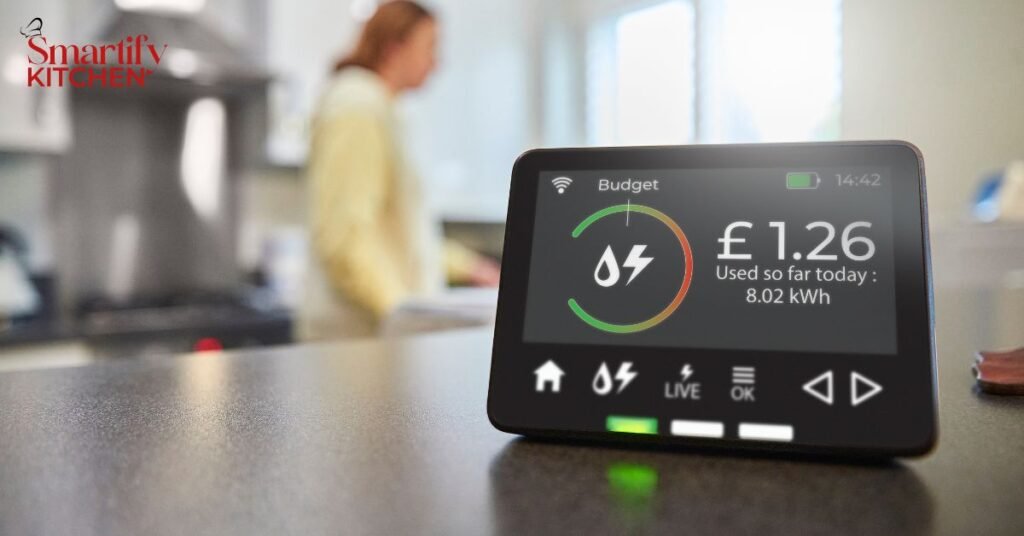
Prioritizing Ease of Use and Accessibility
Ease of use and accessibility are critical factors to consider when selecting smart kitchen devices for seniors. Look for devices with simple, intuitive interfaces and clear instructions. Features such as large buttons, easy-to-read displays, and voice control can make these devices more accessible and user-friendly.
Ensuring Compatibility with Existing Devices
It’s important to ensure that the chosen smart kitchen devices are compatible with any existing smart home systems or devices. This compatibility can simplify integration and allow for more seamless operation.
For example, if the senior already uses a smart assistant like Amazon Alexa, choosing kitchen devices that work with Alexa can enhance the overall smart home experience.
Seeking Professional Installation and Setup Assistance
For more complex installations, such as wiring or integrating security systems, consider hiring a professional. Professional installation can ensure that the devices are set up correctly and safely, providing peace of mind and reducing the risk of errors.
Additionally, professionals can offer valuable advice on optimizing the setup to meet the senior’s specific needs.
Real-Life Examples and Case Studies
Let’s Explore some Real-Life Examples and Case Studies.
Success Stories of Seniors Using Smart Kitchen Technology
Numerous seniors have successfully integrated smart kitchen technology into their daily lives, enhancing their safety, independence, and convenience. For example, a senior with arthritis might use a smart oven with voice control to prepare meals without struggling with manual controls.
Another senior with memory loss might benefit from a smart refrigerator that tracks food inventory and sends expiration date alerts, reducing waste and ensuring that fresh food is always available.
Testimonials from Caregivers and Family Members
Caregivers and family members often provide valuable insights into the benefits of smart kitchen technology for seniors. Testimonials can highlight how these devices have improved the quality of life for their loved ones, providing examples of increased safety, convenience, and independence.
For instance, a caregiver might describe how a smart stove’s automatic shut-off feature has given them peace of mind, knowing that their loved one is less likely to accidentally leave the stove on.
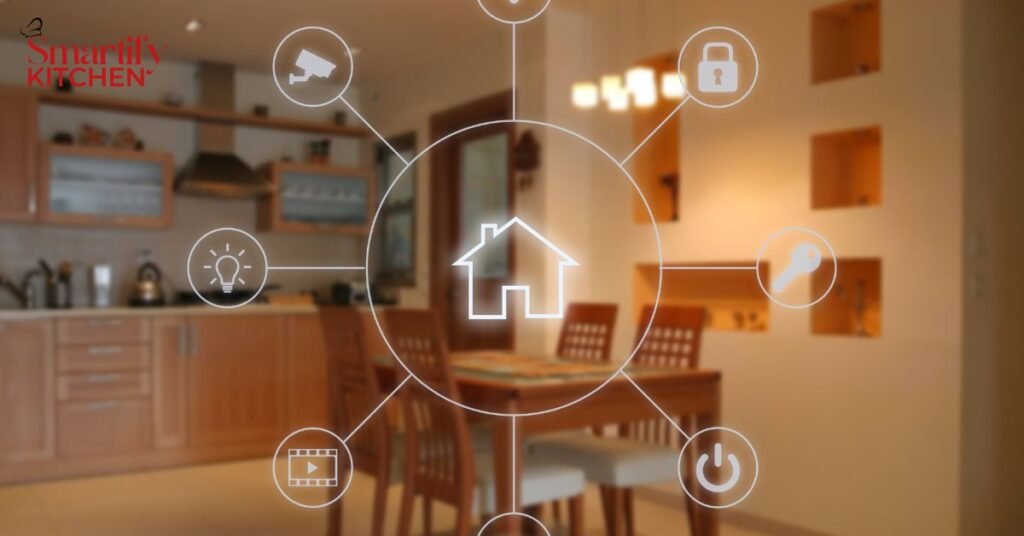
Future Trends in Smart Kitchen Technology for Seniors
Let’s Explore some Future Trends in Smart Kitchen Technology for Seniors.
Advances in AI and Machine Learning
Artificial intelligence (AI) and machine learning are driving significant advancements in smart kitchen technology. These technologies enable devices to learn from user behaviour and preferences, making automation more intuitive and personalized.
For example, an AI-powered smart oven might learn a senior’s favorite recipes and cooking times, automatically adjusting settings to match their preferences.
Development of More Intuitive and Adaptive Interfaces
As technology continues to evolve, we can expect the development of more intuitive and adaptive interfaces for smart kitchen devices. These interfaces will be designed to accommodate the specific needs of seniors, making it easier for them to interact with and control their devices.
For example, touchscreens with large icons and voice-activated controls can make it simpler for seniors to operate their kitchen appliances.
Expansion of Health and Wellness Features
Future smart kitchen technology will likely include expanded health and wellness features, offering more comprehensive support for seniors’ health needs. These features might include advanced dietary tracking, personalized meal planning based on health data, and integration with other health monitoring devices.
For example, a smart refrigerator could analyze a senior’s dietary habits and provide tailored nutritional advice, helping them maintain a balanced diet and manage chronic conditions more effectively.
Conclusion
Smart kitchen technology has the potential to significantly enhance the lives of seniors by providing increased safety, independence, and convenience.
By understanding the key features, types of devices, and benefits of smart kitchen technology, seniors and their caregivers can make informed decisions about integrating these innovations into their homes.
As technology continues to advance, the possibilities for improving the quality of life for seniors will only expand, making smart kitchen technology an increasingly valuable tool for promoting health, wellness, and independence.




